DISPERSE BLUE 1
Synonym(s):1,4,5,8-Tetraaminoanthraquinone
- CAS NO.:2475-45-8
- Empirical Formula: C14H12N4O2
- Molecular Weight: 268.27
- MDL number: MFCD00001225
- EINECS: 219-603-7
- SAFETY DATA SHEET (SDS)
- Update Date: 2024-12-18 14:15:30
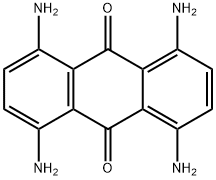
What is DISPERSE BLUE 1?
Chemical properties
blue-black crystalline powder
The Uses of DISPERSE BLUE 1
Disperse blue 1 has been used in hair-color formulations and to color fabrics and plastics. Commercial preparations of disperse blue 1 contain approximately equal amounts of dyestuff and lignosulfonate dispersants. In the mid 1980s, it was reported that semi-permanent hair-color formulations commonly contained disperse blue 1 at concentrations of less than 1% (NTP 1986). Disperse blue 1 is used as a fabric dye for nylon, cellulose acetate and triacetate, polyester, and acrylate fibers and for surface dyeing of thermoplastics, as a solvent dye in cellulose acetate plastics, and to dye fur and sheepskins (NTP 1986, IARC 1990, HSDB 2009). It is also used in some personal-care products, such as hair mousse and toothpaste (HPD 2009).
The Uses of DISPERSE BLUE 1
Disperse Blue 1 is a textile disperse dye. It is an anthraquinone dye used at low levels in semipermanent hair color formulations. Dyes and metabolites, Environmental Testing.
Definition
ChEBI: Disperse Blue 1 is an anthraquinone.
General Description
Blue-black microcrystalline powder.
Air & Water Reactions
Insoluble in water.
Reactivity Profile
An amine. Amines are chemical bases. They neutralize acids to form salts plus water. These acid-base reactions are exothermic. The amount of heat that is evolved per mole of amine in a neutralization is largely independent of the strength of the amine as a base. Amines may be incompatible with isocyanates, halogenated organics, peroxides, phenols (acidic), epoxides, anhydrides, and acid halides. Flammable gaseous hydrogen is generated by amines in combination with strong reducing agents, such as hydrides.
Health Hazard
ACUTE/CHRONIC HAZARDS: When heated to decomposition DISPERSE BLUE 1 emits toxic fumes of nitrogen oxides.
Fire Hazard
Flash point data for DISPERSE BLUE 1 are not available; however, DISPERSE BLUE 1 is probably combustible.
Safety Profile
Confirmed carcinogen with experimental carcinogenic data. Experimental reproductive effects. Mutation data reported. When heated to decomposition it emits toxic fumes of NOx.
Carcinogenicity
Disperse blue 1 is reasonably anticipated to be a human carcinogen based on (1) sufficient evidence of carcinogenicity from studies in experimental animals and (2) the fact that it belongs to a welldefined, structurally related class of anthraquinones whose membersare listed in the Report on Carcinogens as reasonably anticipated to be human carcinogens.
Properties and Applications
Blue. Soluble in acetone, ethanol, soluble fiber element, slightly soluble in benzene and linseed oil, the strong sulfuric acid for brown, diluted becomes shallow. And C.I. Solvent Blue 18 the same chemical structure
| Standard | Ironing Fastness | Light Fastness | Persperation Fastness | Washing Fastness | |||
| Fading | Stain | Fading | Stain | Fading | Stain | ||
| ISO | 4-5 | 4-5 | 4 | 4-5 | 4-5 | 4-5 | 5 |
Properties of DISPERSE BLUE 1
| Melting point: | 332℃ |
| Boiling point: | 411.44°C (rough estimate) |
| Density | 1.2035 (rough estimate) |
| refractive index | 1.6000 (estimate) |
| Colour Index | 64500 |
| pka | 0.40±0.20(Predicted) |
| form | Powder |
| color | Chocolate brown |
| Water Solubility | 26.83ug/L(25 ºC) |
| BRN | 925672 |
| Stability: | Stable. Combustible. Incompatible with strong oxidizing agents. |
| CAS DataBase Reference | 2475-45-8(CAS DataBase Reference) |
| IARC | 2B (Vol. 48) 1990 |
| EPA Substance Registry System | C.I. Disperse Blue 1 (2475-45-8) |
Safety information for DISPERSE BLUE 1
| Signal word | Danger |
| Pictogram(s) |
 Corrosion Corrosives GHS05  Exclamation Mark Irritant GHS07  Health Hazard GHS08 |
| GHS Hazard Statements |
H315:Skin corrosion/irritation H317:Sensitisation, Skin H318:Serious eye damage/eye irritation H350:Carcinogenicity |
| Precautionary Statement Codes |
P201:Obtain special instructions before use. P280:Wear protective gloves/protective clothing/eye protection/face protection. P302+P352:IF ON SKIN: wash with plenty of soap and water. P308+P313:IF exposed or concerned: Get medical advice/attention. |
Computed Descriptors for DISPERSE BLUE 1
New Products
(S)-3-Aminobutanenitrile hydrochloride 4-Methylphenylacetic acid N-Boc-D-alaninol N-BOC-D/L-ALANINOL Tert-butyl bis(2-chloroethyl)carbamate 3-Morpholino-1-(4-nitrophenyl)-5,6-dihydropyridin- 2(1H)-one Furan-2,5-Dicarboxylic Acid Tropic acid 1-Bromo-3,5-Di-Tert-Butylbenzene S-2-CHLORO PROPIONIC ACID ETHYL ISOCYANOACETATE 2-Bromo-1,3-Bis(Dimethylamino)Trimethinium Hexafluorophosphate 4-IODO BENZOIC ACID 3-NITRO-2-METHYL ANILINE 1-(2,4-DICHLOROPHENYL) ETHANAMINE (2-Hydroxyphenyl)acetonitrile 4-Bromopyrazole 2-(Cyanocyclohexyl)acetic acid 4-methoxy-3,5-dinitropyridine 1-(4-(aminomethyl)benzyl)urea hydrochloride 2-aminopropyl benzoate hydrochloride diethyl 2-(2-((tertbutoxycarbonyl)amino) ethyl)malonate tert-butyl 4- (ureidomethyl)benzylcarbamate Ethyl-2-chloro((4-methoxyphenyl)hydrazono)acetateRelated products of tetrahydrofuran
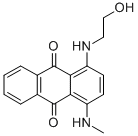
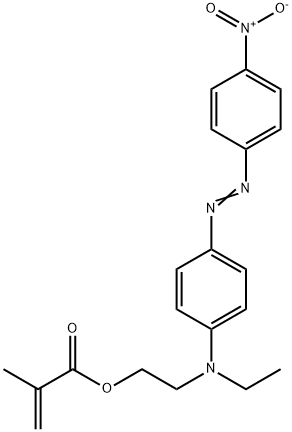
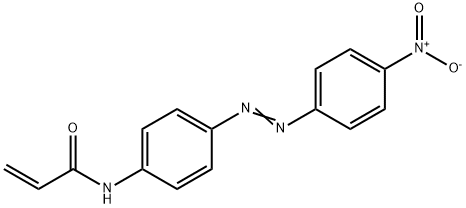
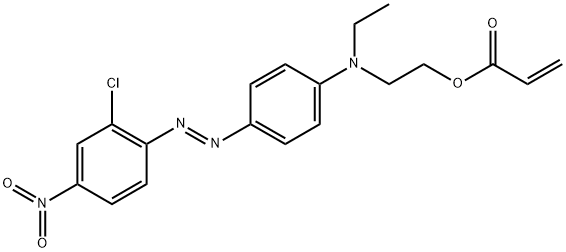
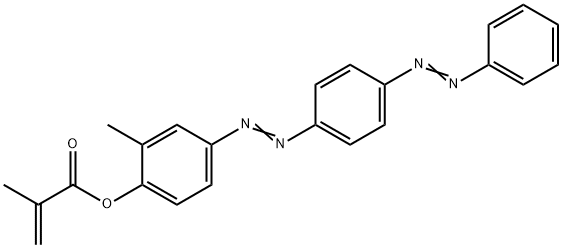
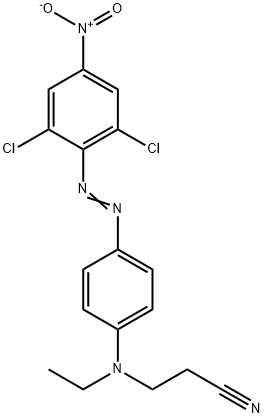

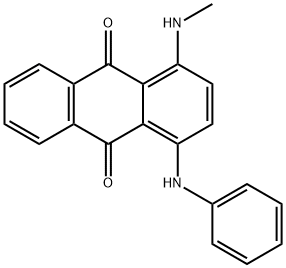
You may like
-
 Disperse Blue 1 CAS 2475-45-8View Details
Disperse Blue 1 CAS 2475-45-8View Details
2475-45-8 -
 2033-24-1 98%View Details
2033-24-1 98%View Details
2033-24-1 -
 1975-50-4 98%View Details
1975-50-4 98%View Details
1975-50-4 -
 2-HYDROXY BENZYL ALCOHOL 98%View Details
2-HYDROXY BENZYL ALCOHOL 98%View Details
90-01-7 -
 2-Chloro-1,3-Bis(Dimethylamino)Trimethinium Hexafluorophosphate 221615-75-4 98%View Details
2-Chloro-1,3-Bis(Dimethylamino)Trimethinium Hexafluorophosphate 221615-75-4 98%View Details
221615-75-4 -
 61397-56-6 CIS BROMO BENZOATE 98%View Details
61397-56-6 CIS BROMO BENZOATE 98%View Details
61397-56-6 -
 14714-50-2 (2-Hydroxyphenyl)acetonitrile 98+View Details
14714-50-2 (2-Hydroxyphenyl)acetonitrile 98+View Details
14714-50-2 -
 118753-70-1 98+View Details
118753-70-1 98+View Details
118753-70-1